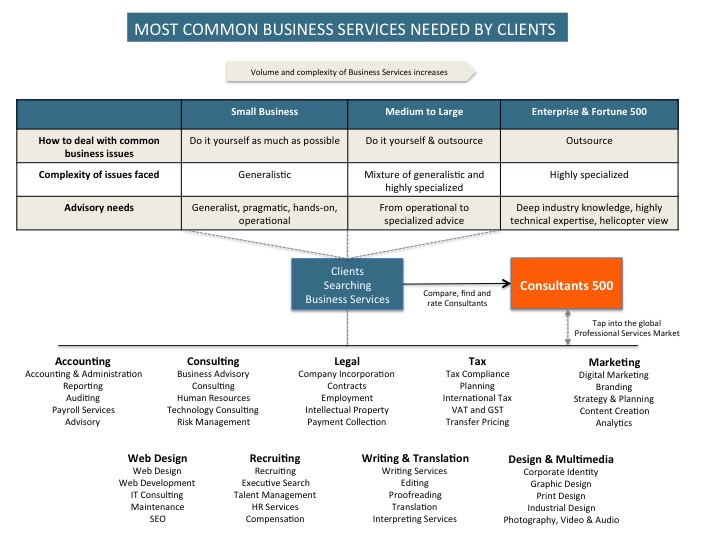Business services are support functions companies use to manage their operations, while professional services are specialized expertise provided by trained professionals. Business services encompass a broad range of activities, from IT support to accounting, that help a company run smoothly.
Understanding the distinction between business services and professional services is crucial for businesses seeking to optimize their operations and for clients looking for specific expertise. Business services offer solutions that maintain the day-to-day workflow of a company. These include administrative tasks, facilities management, and logistics.
Professional services, on the other hand, deliver specialized advice and skills, like legal counsel, management consulting, or architectural design, which require a high level of training or certification. Companies often engage professional service providers to address complex issues, implement strategic changes, or gain competitive advantage through expert insights. This differentiation is essential for businesses aiming to allocate resources efficiently and for service providers targeting their market effectively.
Scope Of Work
Understanding the ‘Scope of Work’ helps us see what businesses actually do. It’s like a map for their daily tasks. Companies use this to stay focused and clear about their jobs. We’ll explore how this map looks for two types of companies: Business Services and Professional Services.
Business Services Scope
Business services support other companies. They help them run smoothly. Think of them like helpers for all sorts of tasks. Here’s what they do:
- Customer support: They talk to customers and solve problems.
- Management: They plan and make sure everything works right.
- Maintenance: They fix and take care of buildings and machines.
These services touch many parts of a business. They keep the lights on and the wheels turning.
Professional Services Scope
Professional services are different. They need special skills or knowledge. People train for years to offer these services. They include:
| Service Type | Description |
|---|---|
| Law | Lawyers give legal advice and go to court. |
| Accounting | Accountants work with money and taxes. |
| Consulting | Experts give advice on how to do better in business. |
These experts dive deep into problems. They use their brains to find the best paths for businesses.
Target Audience
Understanding who benefits from a service is key to success. Target Audience defines who the service is for. Business and professional services differ greatly in this aspect.
Business Services Audience
Business services cater to companies as their primary audience. They focus on helping organizations run smoothly. These services are vital for day-to-day operations. They include marketing, IT support, and logistics.
- Corporations: Large companies that need diverse support.
- Small Businesses: Local shops and startups seeking growth.
- Non-profits: Organizations aiming for efficiency without profit motive.
Professional Services Audience
Professional services are tailored for specialized needs. These services require a high skill level. Lawyers, consultants, and accountants offer these services. Their audience includes:
| Individuals | Businesses | Government |
|---|---|---|
| People needing legal advice or tax help. | Companies seeking expert guidance. | Public sectors looking for specialized skills. |
Service Delivery
Understanding how services reach you is key. Let’s explore this under ‘Service Delivery’.
Business Services Delivery Methods
Business services focus on supporting companies. They include:
- IT support
- Consulting
- Logistics
These services deliver through various methods:
- On-site assistance – Experts visit your business.
- Remote support – Help via internet or phone.
- Automated systems – Software does the job.
Each method aims to boost business efficiency.
Professional Services Delivery Methods
Professional services are more specialized. They include:
- Legal advice
- Medical services
- Accounting
These services also use different delivery methods:
| Method | Description |
|---|---|
| Personal consultation | Direct, face-to-face meetings. |
| Virtual consultation | Meetings via video calls. |
| Service centers | Clients visit for services. |
These methods ensure expert advice reaches you effectively.

Credit: www.blog.consultants500.com
Regulation And Compliance
Understanding the rules that guide different types of services is important. In business, rules ensure companies act fairly. In professional services, rules help maintain standards. Let’s explore these rules in detail.
Business Services Regulation
Business services cover a broad range of industries. These can include marketing, logistics, and consulting. Each service follows specific rules. These rules can change based on the country or state.
- Licensing: Some business services need a license to operate.
- Data protection: Companies must protect customer information.
- Advertising laws: Services must advertise truthfully.
Businesses must understand these rules to avoid fines. They also need to keep up with changes to stay compliant.
Professional Services Compliance
Professional services include law, medicine, and accounting. Professionals in these fields must follow strict rules. These rules are often set by professional bodies.
| Service Type | Compliance Body | Common Rule |
|---|---|---|
| Lawyers | Bar Association | Client confidentiality |
| Doctors | Medical Board | Patient care standards |
| Accountants | Accountancy Board | Financial reporting accuracy |
Professional services must meet high standards. This ensures trust and quality in their work. They need to keep their knowledge up-to-date. This is often through ongoing education.
Regulation and compliance are vital. They keep services reliable and safe for everyone. Both business and professional services must follow these rules. This ensures they provide the best service possible.
Key Differences
Let’s dive into the ‘Key Differences’ between business services and professional services. Many people use these terms interchangeably. Yet, they stand for different types of support for companies. Understanding these differences is crucial. It helps firms make informed decisions when seeking external assistance.
Distinguishing Factors
The main difference lies in their nature. Business services are broad. They support a company’s operations. This includes services like banking, insurance, and logistics. Professional services, on the other hand, are more specialized. They require a high level of expertise. Think of accountants, lawyers, and consultants.
| Business Services | Professional Services |
|---|---|
| General support | Expert knowledge |
| Transactional | Advisory |
| Operation-focused | Specialty-focused |
Impact On Business Operations
Choosing the right service affects a company’s success. Business services streamline operations. They make daily tasks easier. This allows staff to focus on core activities. Professional services offer guidance. They solve complex problems. They also help in decision-making. This leads to growth and compliance.
- Business services: Enhance efficiency and productivity.
- Professional services: Provide strategic advice and specialized solutions.

Credit: www.veritis.com
Challenges And Opportunities
Exploring the unique landscapes of business and professional services unveils distinct challenges and opportunities. These sectors, while often overlapping, face their own sets of hurdles and prospects for growth. Understanding these elements is crucial for success in each field.
Business Services Challenges
Business services, often the backbone of commerce, encounter specific challenges:
- Competition is fierce, with many firms offering similar services.
- Technological advances demand constant adaptation.
- Scaling services can be complex, impacting consistency and quality.
- Customer expectations are high, requiring tailored solutions.
Professional Services Opportunities
Professional services, centered around specialized expertise, enjoy unique opportunities:
- Niche markets offer a space to specialize and excel.
- Global reach is possible through digital platforms and networks.
- Regulatory changes often create new needs for expert advice.
- Collaborative models enable leveraging diverse skill sets.

Credit: www.onefederalsolution.com
Frequently Asked Questions
What Are Business And Professional Services?
Business and professional services refer to a range of non-physical, specialized support provided to organizations. These include consulting, legal, accounting, marketing, and administrative services, among others.
What Is The Difference Between Services And Professional Services?
Services generally refer to a broad category of non-physical, intangible tasks performed for a customer. Professional services are a subset, typically requiring specialized skills, qualifications, or certifications, such as legal advice or accounting.
What Is Included In Professional And Business Services Industry?
The professional and business services industry encompasses legal, accounting, architectural, engineering, advertising, consulting, and administrative support services.
What Are Professional And Business Services Bls?
Professional and business services BLS refer to data from the Bureau of Labor Statistics that track employment, wages, and productivity in professional and business sectors. This information helps analyze industry trends and economic health.
Conclusion
Understanding the nuances between business and professional services is crucial for any entrepreneur. Each category serves distinct needs, leveraging specialized skills or broader support solutions. Selecting the right service type can propel a company towards its strategic goals. Remember, success hinges on recognizing which services align best with your business objectives.
Choose wisely to ensure growth and efficiency.
 Sotto TV Sotto TV বাংলাদেশের একটি জনপ্রিয় ওয়েব পোর্টাল। যেখানে টেকনোলজি,বিভিন্ন ধরনের টিপস,ক্যারিয়ার টিপস,ব্যাংকিং ইনফর্মেশন, অনলাইনে আয় করার পদ্ধতি এবং সাম্প্রতিক সময়ে ঘটে যাওয়া সকল আপডেট তথ্য প্রকাশ করা হয়।
Sotto TV Sotto TV বাংলাদেশের একটি জনপ্রিয় ওয়েব পোর্টাল। যেখানে টেকনোলজি,বিভিন্ন ধরনের টিপস,ক্যারিয়ার টিপস,ব্যাংকিং ইনফর্মেশন, অনলাইনে আয় করার পদ্ধতি এবং সাম্প্রতিক সময়ে ঘটে যাওয়া সকল আপডেট তথ্য প্রকাশ করা হয়।



